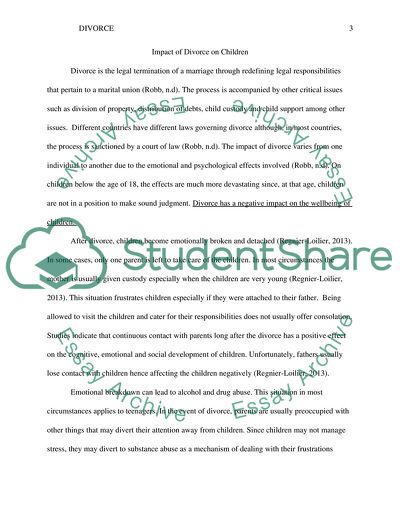Cite this document
(The Impact of Divorce on Children Case Study Example | Topics and Well Written Essays - 1750 words, n.d.)
The Impact of Divorce on Children Case Study Example | Topics and Well Written Essays - 1750 words. https://studentshare.org/psychology/1861442-impact-of-divorce-on
The Impact of Divorce on Children Case Study Example | Topics and Well Written Essays - 1750 words. https://studentshare.org/psychology/1861442-impact-of-divorce-on
(The Impact of Divorce on Children Case Study Example | Topics and Well Written Essays - 1750 Words)
The Impact of Divorce on Children Case Study Example | Topics and Well Written Essays - 1750 Words. https://studentshare.org/psychology/1861442-impact-of-divorce-on.
The Impact of Divorce on Children Case Study Example | Topics and Well Written Essays - 1750 Words. https://studentshare.org/psychology/1861442-impact-of-divorce-on.
“The Impact of Divorce on Children Case Study Example | Topics and Well Written Essays - 1750 Words”. https://studentshare.org/psychology/1861442-impact-of-divorce-on.


